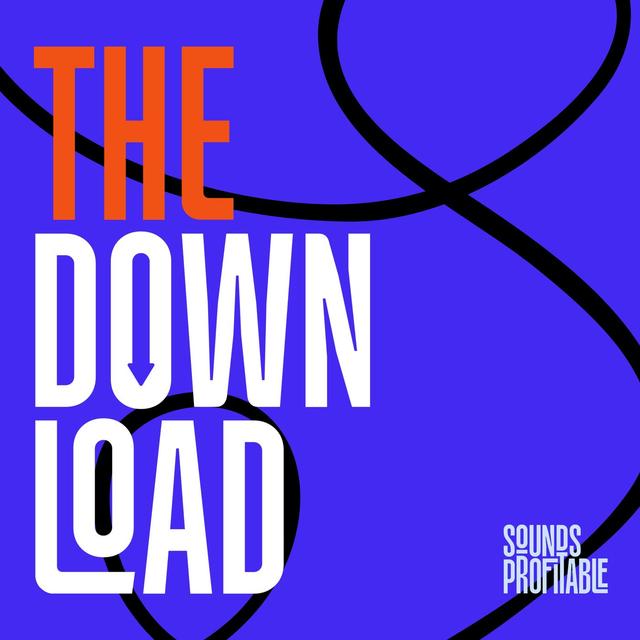This is the download from Sounds Profitable, your daily source for the essential news of the business of podcasting. I'm Gavin Gaddis. Here's what you need to know for today, Tuesday, January 28th. Before we get started, I want to give a quick heads up for sports fans.
who are going to be attending On Air Fest next month. Once again, the ESPN 30 for 30 Lounge is taking pitches for new 30 for 30 podcast episode ideas. Last year's pitches went over so well, there's an episode based on one of those pitches currently in production. On Air Fest, attendees can now register to bring their 30 for 30 pitch right now. Go for it.
Our first story for today, how are Americans using their cell phones at work? This new piece from RSS.com has published the results of a new study into personal phone usage while at work, built from a survey of over 3,400 adults conducted over two weeks in December of 2024. According to the data, the average American clocks just over three hours of personal minutes on their phone during an average workday. 30 minutes of that time is spent consuming podcasts with respondents in Texas.
over-indexing with an average of 59 minutes of podcasts per day, which reaffirms a long-held selling point of podcasting both as a medium and as an advertising tool. Podcasts are a companion medium. They're in listeners' ears while they do dishes, take out the trash, and even while they file their TPS reports. Next up, buyers say CTV's transparency problem remains a roadblock to investment. A consistent critique of connected television, or CTV,
that has gotten over the years is a lack of transparency for people buying CTV inventory, a problem that has gotten even murkier as TV bundles have become the hot new trend, making it even more difficult for buyers to discern if they just bought ad space on the actual main streaming service with prestige TV releases coming up, or if they just got shunted to their fast subsidiary that's free ad-supported TV.
Veterans of podcasting will recall when Bayer's biggest criticism of us was a lack of ad transparency, something podcasting's ad tech has largely solved for since the industry's infancy. Next up, marketers are rewriting the brand safety playbook for content creators in 2025.
A look at any means possible. A creative collector known for star streamers that occasionally dabble in edgy and controversial content and how brand safety concerns seem to not concern the brands that work with them. One big motivator for not sweating brand unsafe content is a growing acknowledgement of how creator sponsorships work. As audiences become more media savvy, they also become more aware of how ephemeral content creator sponsorships can be. A connection that's stronger than ever in podcasting as reports like the media.
moves the message, or the true crime listener landscape show that podcast audiences understand brand deals make their favorite podcast possible, and they tend to reward the brands that fund the content they like.
Next up, Alex Cooper's Call Her Daddy episodes move to YouTube from Spotify. Alex Cooper's SiriusXM era continues with the move of unwell networked video podcasts, leaving Spotify for YouTube exclusivity. Alan Abdeen, head of ad revenue at YMH Studios, notes the complexities of this decision, as exclusivity can be a double-edged sword for content. YouTube is a massive platform, but Alex Cooper was one of the vanguards of Spotify training audiences to watch video content.
As a result, a good portion of her audience hasn't been trained to intuitively know they can find episodes of her podcasts in a different ecosystem. Abdeen proposes the potential signal loss of not following a multi-platform strategy might suggest there's a partnership with YouTube to give Unwell Network favorable economics in exchange for platform exclusivity. Next up, fast channels continue catching on and fast.
The appeal of free ad-supported TV is reaching legacy organizations in broadcasting, including previously ad-free ones. At CES earlier this month, Chief Digital and Marketing Officer at PBS Ira Rubenstein shared the public broadcaster is building a streaming presence in part through a fast channel on Amazon Prime Video. One big appeal of fast is the growing trend of shoppable ad content.
Creatives containing clickable UI, allowing smart TVs to buy products or push viewers to a mobile ordering portal. As for the rest of the news, Triton Digital has released their 2024 U.S. podcast report, with the leading genres of the year being news, true crime, and comedy. Peter Field of Westwood One dug into the IPA Effectiveness Data Bank on a new study examining market effectiveness. No Such Thing as a Fish has renewed its partnership with Audioboom for a multi-year distribution and monetization deal.
Brooke Minters has been recruited to lead the New York Times podcast new podcast video team. Dear Media has onboarded the world's first podcast from the sisters behind Nobody Wants This. And YouTube's Senior Director of Growth and Discovery shares some details on how YouTube's recommendation algorithm works.
Be sure to check out all the links to every article mentioned right in your podcast listening app or at soundsprofitable.com where you can also subscribe to the newsletter version. The download is written and produced by Newton Schottelcotti, Brian Barletta, Gavin Gaddis, that's me, and Tom Webster. For Sounds Profitable, I'm Gavin Gaddis. Download us again tomorrow.
